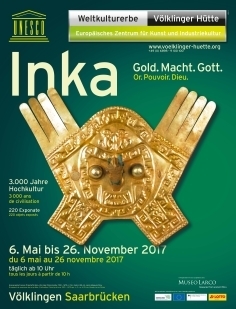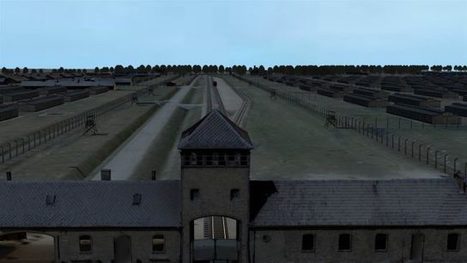Für die Inka waren es "Perlen der Sonne", die Spanier sahen nur den materiellen Wert. Der Mythos des Inka-Goldes hat in dieser Unversöhnlichkeit zweier Wertesysteme ihren Ursprung. Nach "InkaGold" (2004/2005) nimmt das Weltkulturerbe Völklinger Hütte erneut und mit neuen Exponaten die faszinierenden Hochkulturen der Inka- und Vor-Inka-Zeit in den Blick.
Der Kern-Bestand der Exponate stammt aus dem Larco Museum, Lima und Cusco, das die größte Privatsammlung altperuanischer Kunst weltweit besitzt. Einzigartige Exponate des Musée des Jacobins, Auch (F), des Weltmuseums Wien und des Roemer- und Pelizaeus- Museums, Hildesheim, vervollständigen die Ausstellung. Die Museen in Wien und Hildesheim sind für ihre Sammlungen weltberühmt. Das Musée des Jacobins, Auch, besitzt eine der größten Sammlungen zur präkolumbianischen Kultur in Frankreich. Das Musée de l'Armée, Paris, leiht spanische Waffen und Pferderüstung der spanischen Conquistadores.
Learn more / En savoir plus / Mehr erfahren:
http://www.scoop.it/t/21st-century-learning-and-teaching/?&tag=History...



 Your new post is loading...
Your new post is loading...














Learn more / En savoir plus / Mehr erfahren:
http://www.scoop.it/t/21st-century-learning-and-teaching/?&tag=History...